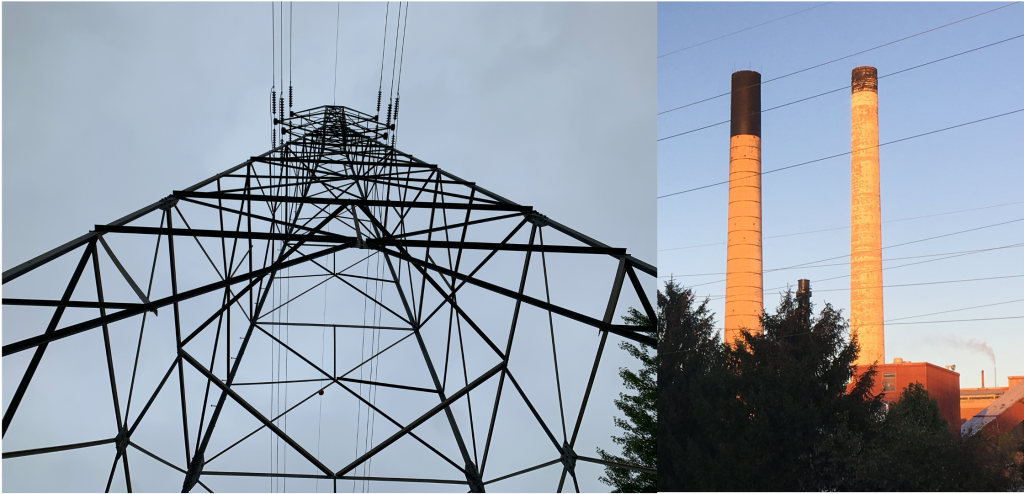
Our current and recent projects on electricity and water resources:
Modeling and forecasting building-scale electricity consumption
Electricity is an important aspect of livability in cities, particularly regarding space heating and air conditioning in changing climates. Using electricity meter measurements, we are modeling building-scale electricity consumption to determine statistically-relevant determinants of spatial and temporal patterns. These features inform machine learning approaches that forecast electricity consumption within a broader digital twin architecture.
Funding: Center for Infrastructure Resilience in Cities as Livable Environments
Understanding power grid reliability in response to drought and heat wave conditions
Under drought and heat wave conditions, the impacts of power generation on water resources are exacerbated. While there is often adequate generation capacity to completely eliminate these impacts by shutting down affected generators, the resulting grid configuration might be unreliable. In this work, we examine the tradeoffs between water externalities and electricity reliability under water-stressed conditions and develop approaches for optimal decision-making.
Funding: Institute for Sustainability, Energy, and Environment
Integrating thermoelectric power generation operations with aquatic ecosystem sustainability
With rising population comes an increasing demand for electricity generation. The rise in electricity generation will likely require tradeoffs in ecosystem sustainability, particularly as a result of thermal pollution from thermoelectric power plant cooling operations. By incorporating biology into the energy-water nexus, power plant operators and policy makers can better manage the generation of electricity while also promoting ecosystem sustainability. Our work quantifies the direct risk posed to aquatic species from thermal pollution, while also providing a method and framework for further assessment of the tradeoffs between power generation and aquatic ecosystems.
Funding: National Science Foundation Graduate Research Fellowship
Estimating impacts of power plants on water resources in Illinois
Thermoelectric power generation requires significant volumes of water for cooling. Power generation in Illinois depends on mostly coal and nuclear fuels, making electricity in Illinois particularly thirsty. In our study of the energy-water nexus in Illinois, we quantify the water withdrawal and consumption for power generation and simulate the effects of fuel and cooling technology shifts.
Funding: National Great Rivers Research and Education Center